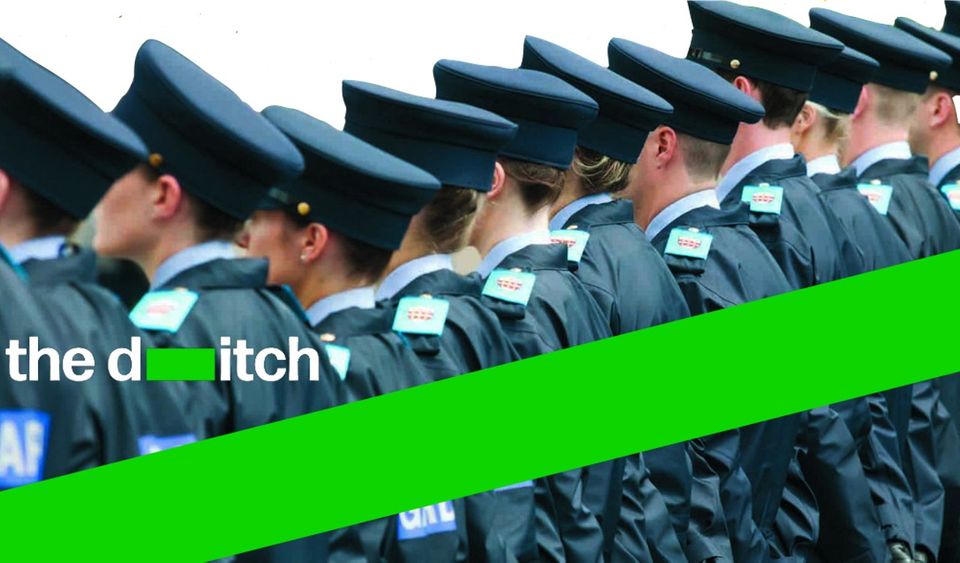A former Fianna Fáil MEP who says he’s endured a campaign of “inappropriate and malicious” conduct from gardaí today had a case against him for a public order offence dismissed.
Kieran Hartley, who was a substitute MEP for Ireland South, was being prosecuted at Dungarvan District Court, county Waterford, for allegedly verbally abusing a relative of a local garda. Hartley had been charged with a criminal offence for, it was claimed, telling this garda’s family member to “fuck off and go away”.
Yesterday in the High Court, Hartley had sought a temporary order preventing the prosecution. In a sworn statement Hartley spoke of his “history of difficulties with the gardaí”, which he said were the result of gardaí’s “inappropriate and malicious” treatment of him. The presiding judge in the High Court proceedings didn’t grant the order, primarily, he said, because Hartley’s application had been brought too late.
Today in Dungarvan courthouse judge Brian O’Shea ruled, “There's simply no case answer,” after hearing evidence from two witnesses. Hartley told The Ditch he would be speaking about his next move with his legal team.
‘He is not charged with impoliteness’
The case in Dungarvan concerned an alleged altercation between Hartley and Eleanor O’Connor, sister-in-law of a Waterford-based garda. After Hartley had cut hedges in a laneway he shared with O’Connor’s father, the pair were involved in a confrontation in which it was alleged Hartley told her, “Fuck off and go away,” and “I will get you a different way.”
During cross examination, defence solicitor Frank Buttimer put it to O’Connor that she had contradicted herself during testimony, which she denied. After hearing witness testimony from Roger O’Connor, judge O’Shea halted proceedings and addressed the court.
“It is a case before me that alleges a criminal offence against Mr Hartley. The accused is charged with a criminal offence – he is not charged with impoliteness. He's not even charged with significant impoliteness or with being angry.
O’Shea said that Hartley’s first alleged statement to O’Connor, “Fuck off and go away,” was “said in the context of an ongoing dispute between the parties. And while it would be unsavoury for that to be said, it could not, even of itself, in the particular circumstances of this case, amount to a criminal offence.” The judge went on to say that the second alleged statement “is open to an entirely innocent explanation”.
Hartley had already questioned the veracity of his own statements that had been entered into evidence during this trial and had sought to question the legality of his prosecution.
An attempt to have the prosecution prevented
Last month The Ditch reported that several journalists attempting to cover Hartley’s trial on 13 October were prevented from entering the Dungarvan courthouse by gardaí claiming to act on behalf of judge O’Shea. Subsequent statements from the Courts Service and the garda press office gave different explanations why these reporters were excluded.
Judge O’Shea ruled at that hearing that Hartley’s defence was not entitled to inspect original written statements taken by prosecuting garda Tom Daly. This decision was at the centre of Hartley’s judicial review proceedings against the DPP, where he disputed the legality of his prosecution.
In a sworn High Court affidavit, Hartley said that, following the hedge-cutting altercation, he gave a voluntary statement to garda Daly in Kilmacthomas garda station. The document that was ultimately entered into evidence, Hartley claimed, was not the statement he signed nor was it “a true reflection” of what he had told garda Daly.
Hartley had claimed that having a handwriting expert examine the statements entered into evidence would “bring in question the fairness of the trial” taken against him.
Elsewhere in his affidavit he made other allegations about both serving and non-serving gardaí.
An allegation against a retired garda
Having narrowly missed out on a European Parliament seat in 2014, Hartley resigned from Fianna Fáil in 2018 over his allegations the party was involved in covering up the activities of convicted Waterford child sex abuser Bill Kenneally. These allegations are now the subject of a statutory commission of investigation chaired by recently retired High Court Judge Michael White.
Hartley later expressed his intention to run as an independent candidate for Waterford in the 2020 general election.
In his High Court affidavit, Hartley alleged he was contacted by a “retired member of An Garda Síochána” who told him his “summonses for alleged driving offences would not proceed” if he were to “withdraw” his name from the election.
Hartley refused to withdraw and two days after his candidacy was announced, according to his affidavit, he received two summonses in the post for alleged driving offences in July 2019. These summonses came four months after a fixed charge penalty notice had already been served on and paid for by Hartley, he says in his affidavit.
Both summonses were struck out in the district court in June 2020.
Judge Charles Meenan, hearing Hartley’s judicial review application, noted however that the matter was before Dungarvan District Court the following day and refused to grant the application.
Garda Tom Daly declined to comment after the case. Daly in 2005 was involved in a civil action brought by former Fianna Fáil councillor Jimmy O’Gorman over the death of O’Gorman’s son. The action – which was also brought against newspaper company Dungarvan Observer Ltd, the minister for justice, the attorney-general and the state itself – concerned the death of councillor O’Gorman’s son Pat.
The Dungarvan Observer in December 1999 published an article titled ‘Cappoquin thugs run visitors out of town’, which named a number of young men who had been arrested after a violent confrontation in Cappoquin. Though Pat O’Gorman had been arrested that night, he wasn’t involved in the confrontation. The article however implied his involvement.
After the article’s publication, O’Gorman became “extremely upset and distressed”, his parents said, and he later died by suicide. In their civil action, which was ultimately settled for €38,000, Pat O’Gorman’s parents said the newspaper was negligent in its reporting for “relying on information from garda Tom Daly which was incorrect”, according to a newspaper report at the time.
The garda press office declined to comment.


